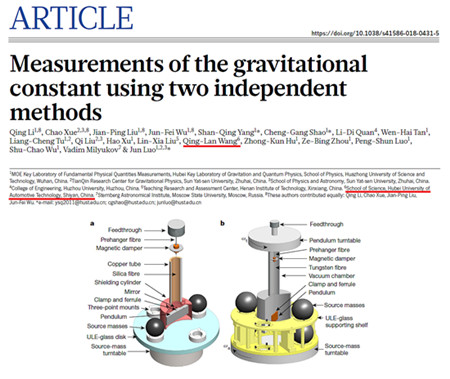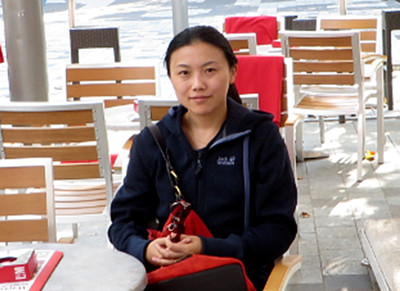Recently an essay entitled Measurements of the gravitational constant using two independent methods, co-written by Dr. Wang Jinglan, was published in the top international journal Nature.
The researchers obtained G values of 6.674184×10-11 and 6.674484×10-11 cubic meters per kilogram per square second for the time-of-swing method and the angular-acceleration-feedback method respectively. The relative uncertainties are about 11.64 and 11.61 parts per million. By comparison, the previous record, which was achieved by using the angular-acceleration-feedback method, was 13.7 per million. The finding contributes significantly to ever approaching to the real state of G values. Because of its breakthrough in the field, “The relative uncertainties are the smallest reported so far”, thus comments generously an editor of Nature.

Nature was founded in 1869, is currently the world's top academic journal and also one of the three major academic journals of the globe. The essays published in the journal basically represent the top research results in related fields.

Dr. Wang Qinglan, tutor of master's degree students and academic director of Optoelectronic Information Science and technology of the College of Science, is mainly engaged in the research of optoelectronic precision measurement, precision torque balance weak force measurement and so on. Because of her outstanding performance in the research field, Ms Wang has won several provincial honors in the past few years. Taking the advantages of her postdoctoral work at Leibniz Universität Hannover and Albert Einstein Institute in Germany from 2015 to 2016, Ms. Wang worked hard and diligently, producing more than 10 academic essays in many famous professional journals at home and abroad as well as participating several key projects of basic research (973 projects) at home and German projects (SFB projects). As a result, her achievements contribute greatly to the academic reputation of HUAT as well as her own personal research abilities.